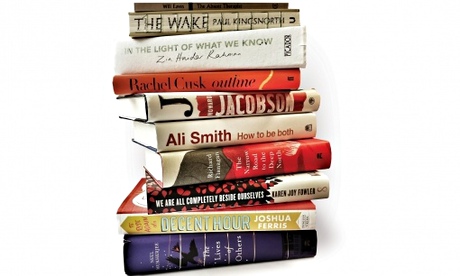The 2014 Goldsmiths prize shortlist: why it’s neither ‘creative’ nor ‘daring’

I was all fired up for the announcement of the 2014 Goldsmiths prize: an award dedicated to creative daring and experimental fiction, a prize set up partly in response to the Booker prize’s infamous year of readability. Last year’s shortlist was incredible, a real celebration of cutting-edge fiction, with the judges surpassing themselves when they selected A Girl is a Half-formed Thing as the winner, giving Eimear McBride her first big nod.
This year, it feels different. Just when you think you’re about to see a set of daring books, you see … well, more of the same. With three of this year’s Goldsmiths shortlist already longlisted for the Booker prize, it’s hard to see how Goldsmiths’ search for the “qualities of creative daring” is any different from the Booker’s aspiration to find the “best, eligible full-length novel”. Some might argue that this can only be good news, a sign that three of the “best” books written in English are also the most “daring”. But when these prizes start to blur together, you start to wonder whether there’s any point to literary awards.
More
This year, it feels different. Just when you think you’re about to see a set of daring books, you see … well, more of the same. With three of this year’s Goldsmiths shortlist already longlisted for the Booker prize, it’s hard to see how Goldsmiths’ search for the “qualities of creative daring” is any different from the Booker’s aspiration to find the “best, eligible full-length novel”. Some might argue that this can only be good news, a sign that three of the “best” books written in English are also the most “daring”. But when these prizes start to blur together, you start to wonder whether there’s any point to literary awards.
More
No comments:
Post a Comment